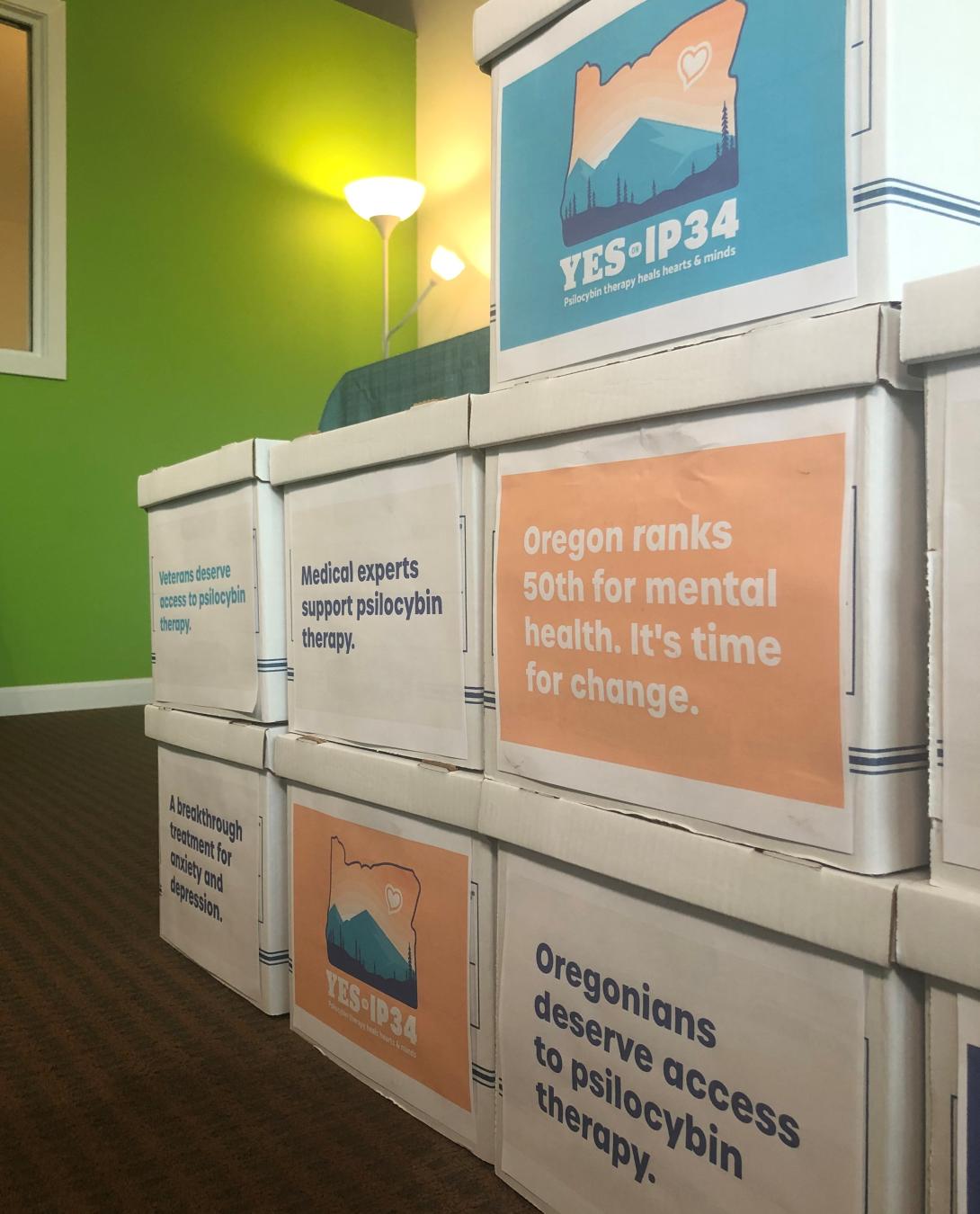
The second time's the charm for a psilocybin initiative.
Nearly two years after they first filed with the Oregon Secretary of State's office for a petition that would legalize psilocybin therapy, Tom Eckert, a Beaverton psychotherapist and his wife Sheri Eckert, have succeeded. The Oregon Secretary of State's office said Wednesday that it had verified 132,465 valid signatures out of the 160,963 they had submitted -- well more than the 112,020 needed to put Measure 109 on the state ballot.
That means that on Nov. 3 Oregonians will decide whether they want to make the state the first in the nation to legalize psychedelic mushrooms in clinical settings.
“We are thrilled that Oregon voters have come together to tackle mental health and depression by qualifying this ballot measure for the November election,” Tom Eckert, a licensed psychotherapist and co-chief petitioner for the initiative, said in a statement. “Oregonians deserve access to psilocybin therapy as a treatment option — and now we officially have a chance to win it.”
Sheri Eckert added: “This careful, regulated approach can make a real difference in people’s lives and we’re looking forward to bringing this program to the state.”
Psilocybin, also known as magic mushrooms, is a hallucinogen found in about 200 types of mushrooms. It activates serotonin receptors, most often in the prefrontal cortex, affecting mood, cognition and perception.
Measure 109, filed as Initiative Petition 34, would not legalize psilocybin for public consumption in the way that recreational marijuana was authorized for sale at Oregon dispensaries in 2015. Patients over the age of 21 would have to attend a “preparation session” with a licensed psilocybin service facilitator before being cleared to use the substance at a psilocybin service center overseen by a physician approved to administer it. Patients would first be screened for health risks, and they wouldn’t be able to leave a facility such as a hospital or private clinic where the drug is administered while they are under the influence, or take the product home with them.
The initiative would create a psilocybin advisory board under the Oregon Health Authority, which would have authority over the program. It would be developed over two years.
The U.S. Drug Enforcement Administration classifies psychedelic mushrooms as a Schedule 1 drug “with no currently accepted medical use and a high potential for abuse.” That’s the same designation the DEA gives to marijuana, despite its legal status in Oregon and other states.
Nevertheless, there's been an uptick in scientific interest in psychedelic mushrooms as a therapy. More than 3,000 academic papers have been written about that ssince 2016. Johns Hopkins University has been among the most active of major institutions conducting clinical studies on patients.
A Johns Hopkins trial conducted on 51 cancer patients and published in 2016 in the Journal of Psychopharmacology found “substantial and sustained decreases in depression and anxiety” in patients given controlled doses of psilocybin. Trials by New York University researchers have turned up similar results.
Use of psilocybin, even in countries with lax drug laws like the Netherlands, frequently occurs in a legal gray area, where the substance isn’t allowed outright but its prohibition isn’t actively enforced.
Last year, Denver and Oakland became the first cities in the United States to decriminalize psilocybin mushrooms for personal use. But the Oregon measure would make it the first in the country to explicitly permit its use under strict supervision.
You can reach Lynne Terry at [email protected] or on Twitter @LynnePDX.
